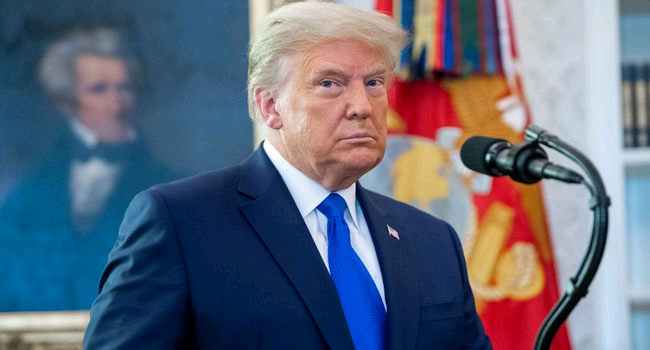In a significant development, the U.S. Supreme Court has announced its decision to hear a landmark case determining the eligibility of Donald Trump to run for president in 2024. The justices will consider Mr. Trump’s appeal against Colorado’s decision to bar him from the state’s 2024 ballot, with the trial scheduled for February.
Several states are pursuing legal actions to disqualify Trump from future presidential runs, citing his alleged involvement in the Capitol riot three years ago. The case hinges on whether a constitutional amendment from the Civil War era renders Mr. Trump ineligible for office due to his participation in an act of rebellion.
Attorneys general from 27 states submitted a brief urging the Supreme Court to overturn Colorado’s decision, arguing that Trump’s exclusion from the ballot could lead to widespread chaos. They contend that it would create confusion in an imminent election cycle and disrupt the roles of Congress, states, and the courts.
The legal challenge questions the interpretation of the 14th Amendment of the U.S. Constitution, which prohibits individuals engaged in insurrection or rebellion from holding federal office. Trump’s legal team argues that he is exempt from this provision, further claiming that the decision would disenfranchise millions of voters.
The Supreme Court’s decision comes after Trump filed an appeal challenging Maine election officials’ decision to remove him from the ballot. Despite the legal battles, Colorado Secretary of State Jena Griswold confirmed that the state’s ballots for the upcoming presidential primary elections had been certified, and Trump’s name was included.
Notably, the Colorado Supreme Court’s recent ruling marked the first instance in U.S. history where the 14th Amendment was applied to remove a presidential contender from the race. The Supreme Court’s decision to examine the interpretation of this provision for the first time adds significance to the case.
With a conservative majority, including three justices nominated by Trump, the U.S. Supreme Court is set to accelerate the case, scheduling oral arguments for February 8. The court’s involvement has drawn parallels to the 2000 presidential election, where it played a decisive role.
The case against Trump underscores the continued legal challenges surrounding his alleged attempts to influence the 2020 presidential election results. While not charged with inciting insurrection, Trump faces legal scrutiny for his role in contesting the election outcome and his campaign’s actions in various jurisdictions.










